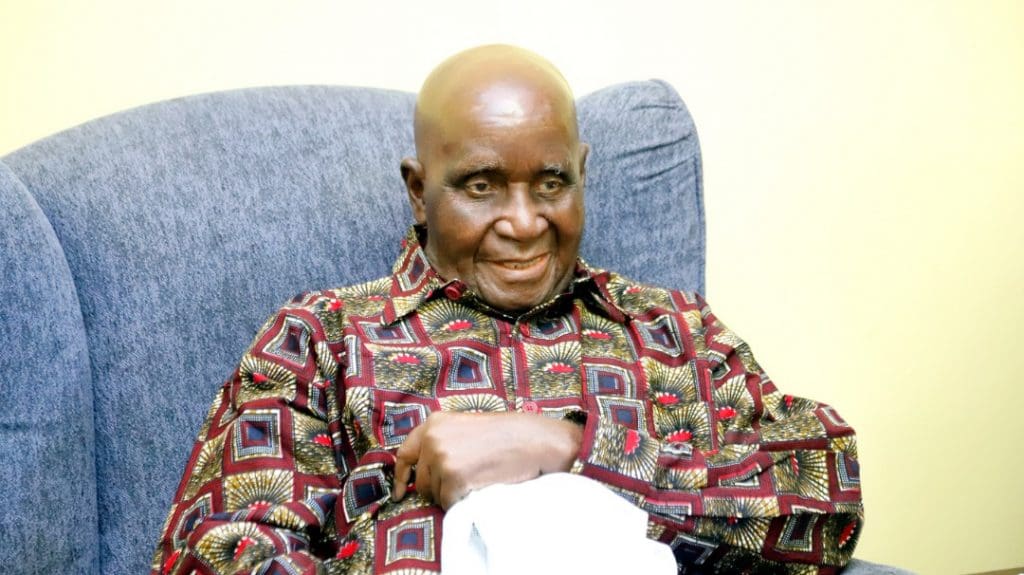The late former Zambian president Kenneth Kaunda was the last of a generation of African leaders that fought for the political liberation of the continent during the last half of the 20th century.
Kaunda, who died in the capital Lusaka on Thursday aged 97, ruled Zambia from independence in 1964 to 1991 when he gracefully handed over power to then opposition leader Frederick Chiluba who had won the presidential poll held that year.
As condolence messages poured in following his death, attention was drawn to the contribution by the departed leader towards the liberation of southern Africa.
Affectionately known as KK, Kaunda was instrumental in assisting countries such as Zimbabwe, Namibia and South Africa gain independence from minority rule.
South African President Cyril Ramaphosa paid tribute to Kaunda’s steadfast commitment to the demise of the apartheid system in Pretoria.
“Steadfast against intimidation of the apartheid state, he offered Lusaka as the headquarters of the African National Congress (ANC) in exile,” Ramaphosa said.
Kaunda risked the safety of his own people to provide refuge to ANC cadres in the 1980s, with Lusaka being targeted for bombardment by the apartheid regime.
“He stood alongside the people of South Africa at the time of our greatest need and was unwavering in his desire for the achievement of our freedom,” Ramaphosa said.
He declared a 10-day mourning period in remembrance of the late Zambian leader.
Namibia’s President Hage Geingob described Kaunda as a generous and affable “giant of a man” who dedicated most of his life to the attainment of freedom in Southern Africa.
“Africans, and Namibians in particular, shall be eternally grateful for his stellar contributions to our freedom,” Geingob said.
African Union Commission chairperson Moussa Faki Mahamat described Kaunda as a “freedom fighter, statesman, visionary and liberation struggle icon”.
“He embodied the true sense of Pan-Africanism, placing his own country Zambia at grave risk in order to provide safe harbour for the liberation movements of Southern Africa as well as its peoples,” Mahamat said.
The outpouring of grief also came from outside Africa, with American civil rights leader Reverend Jesse Jackson saying the continent is poorer following the loss of the late Zambian leader.
“Zambia and Africa have lost a champion of freedom and I have lost a true friend in former President Kenneth Kaunda,” Jackson said.
A strong believer in regional integration and cooperation, Kaunda championed the formation of the Southern African Development Community (SADC) in April 1980, together with former Tanzanian president Julius Nyerere, Botswana’s founding president Sir Seretse Khama, late president Samora Machel of Mozambique and Zimbabwe’s former president Robert Mugabe.
He hosted the inaugural summit of SADC at Mulungushi Conference Centre in Lusaka.
Kaunda was born at Lubwa Mission in Chinsali in April 1924 in tthe hen Northern Rhodesia (now Zambia), the youngest of the eight children of teachers.
He was also a teacher by training before joining the Northern Rhodesian African National Congress in 1951.
He founded the Zambian African National Congress in 1959, but the party was banned and resurfaced a few years later as the United National Independence Party.
Kaunda became Zambia’s first president at independence from Britain in 1964 following a landslide victory in elections held that year.
He was in power for 27 years before he was defeated in multiparty elections in 1991 in which Chiluba of the Movement for Multiparty Democracy won.
He dedicated his later years to the fight against HIV and AIDS – a disease that he publicly announced had taken one of his sons.
JN/APA


